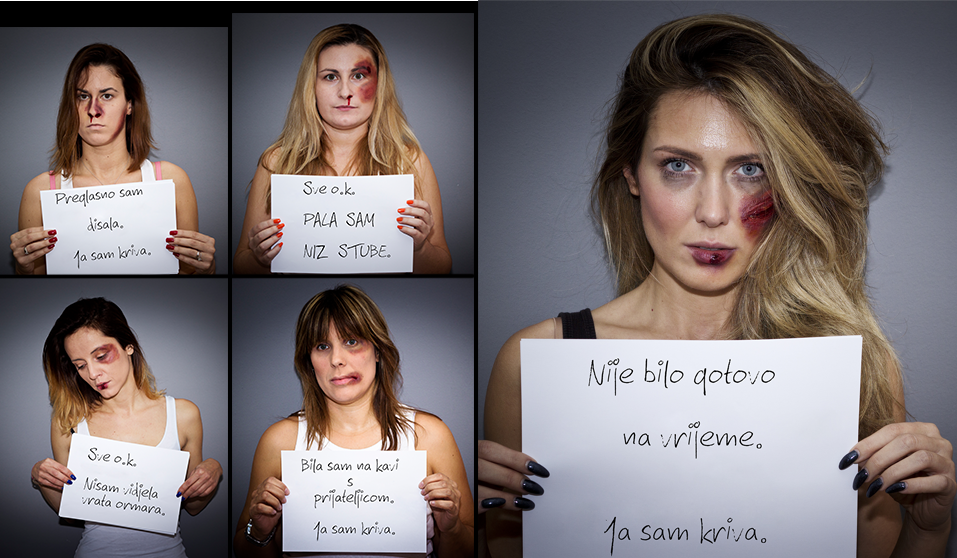
Violence against women in BiH is a problem that is still not being sufficiently discussed and victims of violence most often choose to remain silent due to a variety of societal, religious or material factors.
According to NGO data[1], one in five women in BiH are experiencing psychological or physical violence. 49-year-old Marija[2] from Mostar was a victim of such violence but is no longer a part of this statistic.
“A classic teenage story. I went to a high school that I didn’t really want to attend, so everything was more interesting than studying. He used to come to pick his brother up from school and that’s how we met. We were seeing each other in secret, and it was an idyllic relationship. Or so I thought. I was 18 years old and thought I knew everything I needed to know,” Marija begins her confession.
After several months of seeing each other, they decided to get married. She says she didn’t notice any signs of problematic behavior and that her ex-husband came from a nice family. But after they were married, he lost two sisters in a car accident and soon began consuming alcohol.
“We lived in a place near Banja Luka; a small place where everyone knew each other. Just three months after we were married, he began raising his voice and insulting me when something was bothering him. His parents were on his side,” says Marija, who at that time lived with her in-laws.
As the relationship progressed, so did the physical and psychological violence. The couple also had a child, a little girl.
“Every passing day, things got worse and worse. The relationship wasn’t improving. He was throwing things around the house, smashing everything, insulting and hitting me. Once, he even tried to strangle me. Sometimes, I would just submit to his outrages, other times I would fight back, but there was never a good outcome.”
She asked her mother for help, but the attempt was unsuccessful. Society still condemned the abandonment of one’s spouse and returning to one’s parents.
“I was aware of the circumstances I was in. The institution of marriage had to be respected at all costs. I endured 15 months of uninterrupted fear, hoping for a better tomorrow. Then one day, I simply gathered my courage and headed to the bus station.”
Although she was worried and distraught over leaving her child behind, she did not give up.
“I asked for a one-way ticket to the furthest city from my hometown. When I sat on the bus, I felt relief. As if the shackles were released. With one bag in my hand and a little money in my wallet, I arrived in Mostar, a city I have never been to before and where I didn’t know anyone,” recalls Marija.
She first went to a coffee shop at the bus station where she immediately began inquiring about whether there were any job openings. The owner of another café overheard her and immediately offered her a job and accommodation.
“Later, there was a guy who would show up every day during my shift. And that’s how we met each other. We fell in love and got married. He didn’t care about the details of my past, or about my nationality. We are happy and now have two daughters.”
She saw her former husband only once in court after she moved away, and she sees her daughter from her previous marriage when she visits her birthplace.
“Maybe I was just lucky, but I know I would not have survived that hell. I think it’s important to take an interest in yourself and to throw away the constraints that society imposes upon you. Violence should never be socially acceptable,” concludes Marija, who built a new life for herself in Mostar.
[1] Č.T.: “Violence towards women in BiH: They mostly suffer and stay silent”, https://www.klix.ba/vijesti/bih/nasilje-nad-zenama-u-bih-uglavnom-sute-i-trpe/150909134, (17.2.2018.)
[2] The name Marija has been used in place of the interlocutor’s real name upon her request to remain anonymous.
The Balkan Diskurs Youth Correspondent Program is made possible by funding from the Robert Bosch Stiftung and the National Endowment for Democracy (NED).







